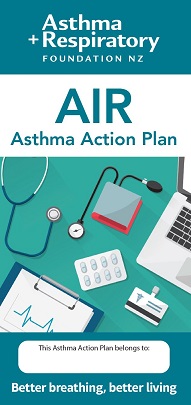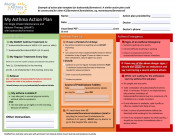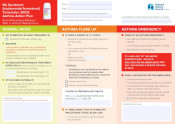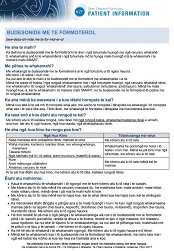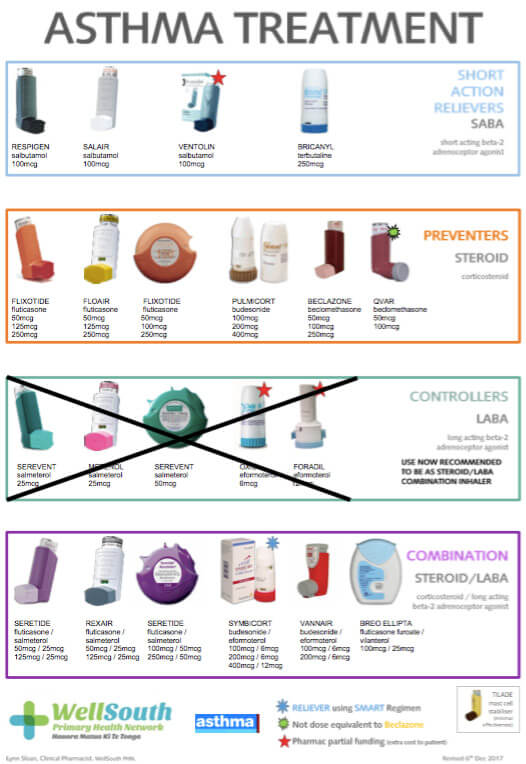AIR and SMART asthma therapy refers to the use of the combination inhalers Symbicort and DuoResp Spiromax to manage asthma.
- AIR stands for anti-inflammatory reliever. It's used for mild asthma. Read more about AIR.
- SMART stands for single maintenance and reliever therapy. It's used for moderate to severe asthma. Read more about SMART.
These inhalers have a combination of 2 medicines, budesonide and formoterol, in a single inhaler.
- Budesonide works by reducing inflammation. It works within hours and the effect lasts several hours.
- Formoterol works to open your airways quickly (within minutes) and the effect will last at least 12 hours after the dose.
Note: Symbicort and DuoResp Spiromax are different devices – Symbicort is a turbuhaler and DuoResp Spiromax is a breath activated inhaler. The choice of which brand to use depends on which inhaler you find easiest to use. Your healthcare provider will show you how to use your inhaler. Good technique gives good asthma control. Read more about inhalers.
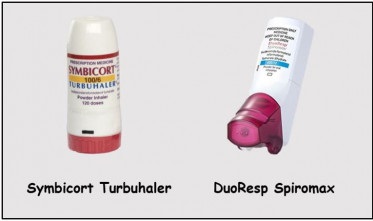
AIR is used for mild asthma
- It's the use of your combination inhaler (Symbicort 200/6 or DuoResp Spiromax 200/6) for relief when you get asthma symptoms, eg, shortness of breath, wheezing, chest tightness and cough.
- AIR is usually for people with mild asthma symptoms. Mild asthma is when:
- you only get asthma symptoms occasionally (less than twice a month)
- you only need help managing your asthma at certain times of the year, eg, during pollen season
- you only need help for symptoms triggered by occasional allergens, eg, other people’s pets
- you only need help managing your symptoms when you exercise.
SMART is used for moderate to severe asthma
- It's the use of your combination inhaler (Symbicort 100/6, Symbicort 200/6 and DuoResp Spiromax 200/6) for the prevention AND relief of asthma.
- You will need to use your inhaler every day AND when you get asthma symptoms, eg, shortness of breath, wheezing, chest tightness and cough.
- This is usually for people with moderate to severe asthma symptoms.
- Note: SMART is also sometimes called MART (maintenance and reliever therapy).



